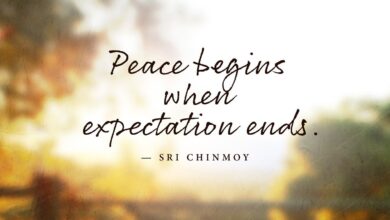
“To grow in our ability to love ourselves we need to receive love as well.”
~ John Gray
When asked on their deathbeds what they most regretted during their lives, dying people consistently expressed one of their top regrets was not spending more time with family and friends. Your close relationships are the most important aspect of your life, and relationships are a vital component to good health and general well-being.
Studies show healthy relationships help you cope better with stress, feel healthier and more satisfied with life, and even live longer. Through relationships with other human beings, you grow and evolve — and you deepen and expand your experience of love and meaning.
When you aren’t confident in your ability to create or sustain a healthy relationship, you undermine your confidence in every other area of your life. In fact, having positive interactions with those around you is the cornerstone for success and happiness in nearly all other life pursuits—from your career to your social life.
Your romantic relationship is the laboratory for understanding more about yourself, as well as learning valuable life skills. Whether you’re in a long-term relationship or just dating, your relationship confidence is vital to your self-esteem and the way your partner perceives you. If you don’t feel confident in your ability to connect, communicate, and interact with others, improving your skills in this area will have a trickle-down effect, improving your health, motivation, productivity, and general happiness.
Know your relationship value.
Often when we don’t feel confident in a relationship, we assume we don’t have many desirable qualities to bring to the relationship. We look to the other person to define our value and reinforce that we’re “good enough” to be in the relationship. In dating situations, you might focus on your flaws and feel insecure about them. But you have many positive qualities you can offer another person. If you aren’t aware of those qualities, or if you choose not to focus on them, then you’re sending a signal to those you want to attract that you don’t feel valuable enough to be in the relationship.
Action Steps: Mentally visualize gathering up all of your flaws and putting them in a big box. Then visualize putting a lock on the box so you can’t access it. Now that your flaws are out of the way, you can only focus on your good qualities. Write down everything positive about yourself that you can offer in a relationship. Spend some time on this, and even ask a close friend or family member to share what they see as your positive qualities. Place this list where you can see it daily.
Have a relationship vision.
Whether you’ve been in a long relationship or just beginning one, you may not have a vision for what you’d like from the relationship and how you want it to feel. What kind of communication style would you like? How do you want to resolve conflict? How much time do you want to spend together? How important is physical touch and affection? Without defining this vision, you and your partner are simply reacting to circumstances rather than creating the ideal relationship you want. If you aren’t in a relationship now, it’s still smart to create your own relationship vision for the future. Then you’ll be prepared to find the type of person who will share your vision.
Action Steps: Make a list of relationship questions like those above. You can use this list of questions to help you. Write down your answers to the questions listed, thinking carefully about the mutual happiness and satisfaction of both people in the relationship. If you are currently married or in a serious relationship, do this exercise with your partner. If you are single, write the answers for yourself and hold on to them for the future when you are in a relationship.
Determine your personal boundaries.
It’s hard to be confident in a relationship when you have no boundaries. Sometimes we avoid boundaries because we aren’t confident. We fear the person we care about will leave us or get angry if we stand up for ourselves or have needs. Does this sound familiar to you? Solid boundaries reflect confidence and increase the respect of those around you. They are necessary not only for the health of the relationship, but also for your own self-esteem. Setting and enforcing boundaries, even if it makes others upset or angry, will give you a huge boost of confidence, because you have the self-respect to know what you want and to require others to respect your wishes.
Action Steps: Think about how you’ve been allowing others to take advantage of you and how you might be accepting situations that are really unacceptable to you. How is this impacting your relationship? Make a list of things your partner (or other people in your life) may no longer do to you, say to you, or do around you. Decide how you need physical and emotional space. Then set a meeting to communicate this calmly, kindly, but firmly.
Notice people pleasing.
People pleasing is the desire to make others happy (or prevent their anger) at your own expense. You feel so uncomfortable with conflict or disappointing others that you’re willing to do just about anything to avoid it. You’re addicted to the approval and good feelings that come from making people happy and comfortable, as you tend to their needs over your own. It makes you feel validated and worthy. Over time you begin to lose confidence in yourself, because you’ve lost sight of who you are, what you want in the relationship, or how to live your life on your own terms.
Action Steps: If you recognize yourself as a people pleaser and see how it’s harming your relationship, then it’s past time to do something about it. This week, choose one situation with your partner or another person you please where you stand up for yourself, say no, or make your own decision—even if it causes conflict. Remain strong. Don’t give in even if you encounter anger or withdrawal by your partner. Resist the need to over-explain yourself or to over- apologize for your decision. If necessary, leave the room or hang up the phone until he/she calms down.
Focus on the positive.
Quite often we lose confidence in ourselves or in the relationship because we’re hyper-focused on the negative. We only see our flaws and weaknesses and fear our partner will reject us as a result. Or we only see our partner’s flaws and believe the relationship is doomed. Maybe we’ve had bad relationships in the past, and the memory of those infects our thinking about our current relationship. However, reality is rarely as negative as we perceive it to be. It might appear negative because that’s all we focus on.
Action Steps: Refer back to the list of positive qualities you bring to your relationship. Then make a list of all of the valuable qualities of your partner and what you love about him/her, as well as a list of the ways your partner is better for you than any previous bad relationships. Finally make a list of all of the wonderful aspects of your relationship. Keep this list handy for times when negative thoughts about your relationship creep back in.







